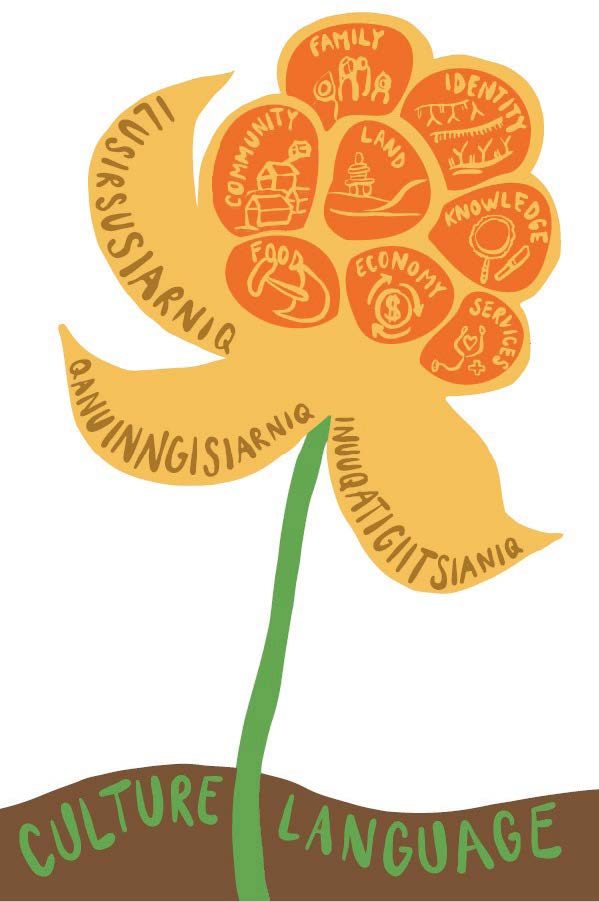Cultural Safety
Introduction
- What is cultural safety?
Cultural safety is an approach that aims to provide healthcare services that respect the values, beliefs and cultural practices of the communities we serve. It is based on listening, recognizing specific needs, and combating systemic discrimination.
- Why is cultural safety essential at Tulattavik?
In Nunavik, where the population is predominantly Inuit, it is essential to bridge the cultural gaps between healthcare professionals and patients, and to build a climate of trust.
The IQI model and the determinants of health in Nunavik

Key Mandates
- Staff awareness and training
- Offer workshops on Inuit cultural values, beliefs and practices.
- Train staff on the history and impact of residential schools, as well as on inclusive healthcare practices.
- Implementation of the Ilusirsusiarniq, Qanuinngisiarniq and Inuuqatigiitsianiq (IQI) model.
- Supporting teams
- Supporting teams in adapting services to meet patients' cultural needs.
- Mediation between patients and staff, as needed.
Key Responsibilities
- Development of inclusive policies
- Collaborate on the creation of protocols integrating the principles of cultural safety.
- Patient support
- Provide personalized support in the event of misunderstandings or special needs related to culture.
- Monitoring and continuous improvement
- Evaluate current practices
- Identify avenues for improvement to foster an inclusive environment.
Main Objectives
- Reduce cultural barriers in accessing and using healthcare services.
- Improve the experience of Inuit patients by ensuring they feel valued and understood.
- Strengthen collaboration between medical teams and local communities.
Expected Impact
- Increased trust between Inuit communities and employees.
- Reduced health inequalities.
- Improved staff retention and satisfaction thanks to greater cultural awareness.
Conclusion
Cultural safety is an essential pillar in promoting equity, dignity and respect in the healthcare offered by UTHC. Together, we can build an environment where every user feels welcomed and valued.
To learn more
IQI Model:
- Summary
- Full report
QANUILIRPITAA? 2017
La sécurisation culturelle en santé et en services sociaux (French only)
Aide-Mémoire Guide : La sécurisation culturelle en santé et en services sociaux (French only)